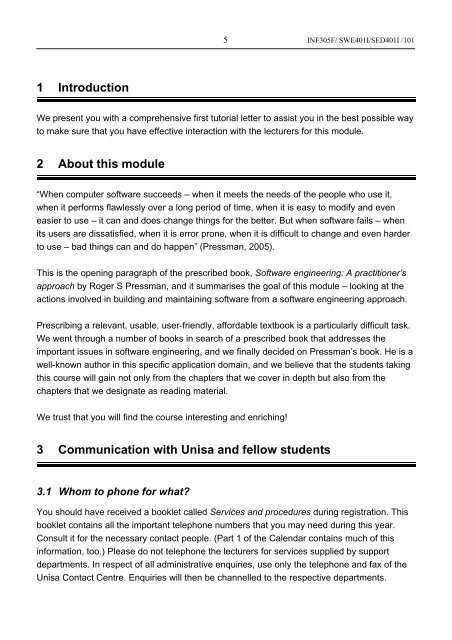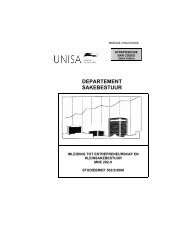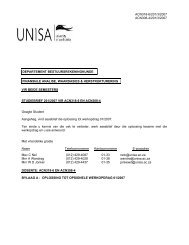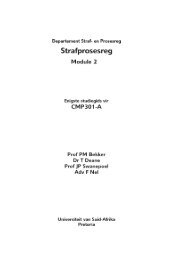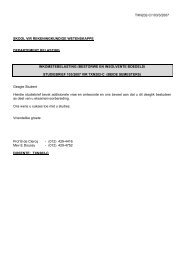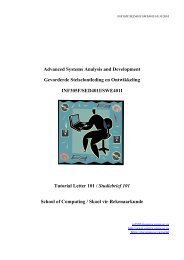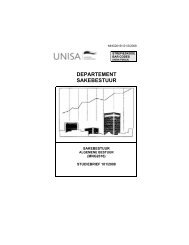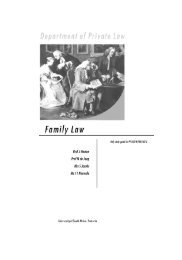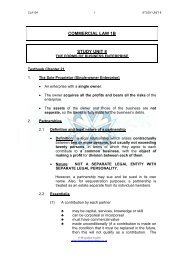School of Computing / Skool vir Rekenaarkunde - Name
School of Computing / Skool vir Rekenaarkunde - Name
School of Computing / Skool vir Rekenaarkunde - Name
Create successful ePaper yourself
Turn your PDF publications into a flip-book with our unique Google optimized e-Paper software.
1 Introduction<br />
5<br />
INF305F/ SWE401I/SED401I /101<br />
We present you with a comprehensive first tutorial letter to assist you in the best possible way<br />
to make sure that you have effective interaction with the lecturers for this module.<br />
2 About this module<br />
“When computer s<strong>of</strong>tware succeeds – when it meets the needs <strong>of</strong> the people who use it,<br />
when it performs flawlessly over a long period <strong>of</strong> time, when it is easy to modify and even<br />
easier to use – it can and does change things for the better. But when s<strong>of</strong>tware fails – when<br />
its users are dissatisfied, when it is error prone, when it is difficult to change and even harder<br />
to use – bad things can and do happen” (Pressman, 2005).<br />
This is the opening paragraph <strong>of</strong> the prescribed book, S<strong>of</strong>tware engineering: A practitioner’s<br />
approach by Roger S Pressman, and it summarises the goal <strong>of</strong> this module – looking at the<br />
actions involved in building and maintaining s<strong>of</strong>tware from a s<strong>of</strong>tware engineering approach.<br />
Prescribing a relevant, usable, user-friendly, affordable textbook is a particularly difficult task.<br />
We went through a number <strong>of</strong> books in search <strong>of</strong> a prescribed book that addresses the<br />
important issues in s<strong>of</strong>tware engineering, and we finally decided on Pressman’s book. He is a<br />
well-known author in this specific application domain, and we believe that the students taking<br />
this course will gain not only from the chapters that we cover in depth but also from the<br />
chapters that we designate as reading material.<br />
We trust that you will find the course interesting and enriching!<br />
3 Communication with Unisa and fellow students<br />
3.1 Whom to phone for what?<br />
You should have received a booklet called Services and procedures during registration. This<br />
booklet contains all the important telephone numbers that you may need during this year.<br />
Consult it for the necessary contact people. (Part 1 <strong>of</strong> the Calendar contains much <strong>of</strong> this<br />
information, too.) Please do not telephone the lecturers for services supplied by support<br />
departments. In respect <strong>of</strong> all administrative enquiries, use only the telephone and fax <strong>of</strong> the<br />
Unisa Contact Centre. Enquiries will then be channelled to the respective departments.


